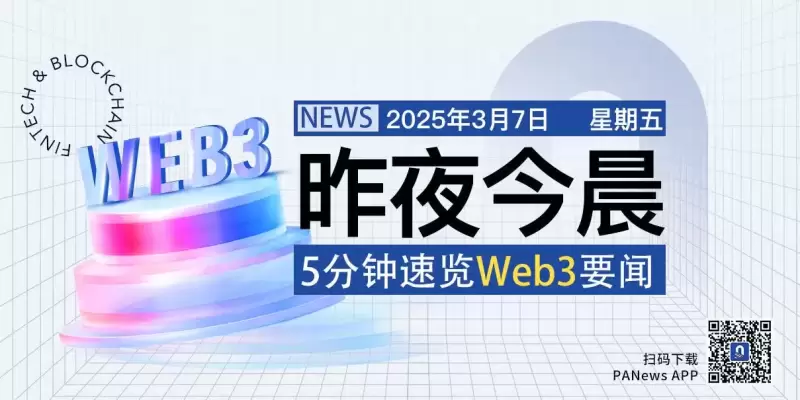 |
|
 |
|
 |
|
 |
|
 |
|
 |
|
 |
|
 |
|
 |
|
 |
|
 |
|
 |
|
 |
|
 |
|
 |
|
Cryptocurrency News Articles
Panel Tackles Rise of Offensive Meme Coins in Crypto Realm
Mar 30, 2024 at 10:48 pm
Solana Panel Debates Racist Meme CoinsA panel discussion at BUIDL Asia explored the issue of emerging meme coins with racist themes. While Solana's Austin Federa emphasized the role of wallet apps in filtering offensive content, Aave Chan's Marc Zeller argued for the obligation to filter under EU law. The discussion highlighted the tension between free speech and content moderation, with Federa emphasizing the importance of censorship resistance and the small proportion of racist meme coins compared to the broader crypto market.

Addressing the Emergence of Meme Coins with Racist Themes: A Panel Discussion
Amidst the proliferation of meme coins within the cryptocurrency ecosystem, concerns have arisen regarding coins that espouse racist themes. To address this issue, a panel discussion was held at the recently concluded BUIDL Asia summit, inviting stakeholders to engage in a critical debate.
Background: Meme Coins with Offensive Content
The cryptocurrency landscape has witnessed a surge in meme coins, with over 1900 emerging in recent times. While many of these coins adopt humorous names and descriptions, a subset has come under scrutiny for using slurs and other offensive language. CoinMarketCap estimates the total market capitalization of all meme coins to be approximately $66.9 billion.
The Role of Wallet Apps and Decentralized Exchanges
One of the key questions discussed during the panel was the responsibility of wallet apps and decentralized exchanges (DEXs) in mitigating the spread of racist content. Participants debated whether these platforms should conduct critical reviews of meme coins to identify and filter out those containing banned words. Alternatively, it was argued that nodes should bear the sole burden of blocking such projects.
Solana's Perspective: Individual Content Decisions
Austin Federa, head of strategy at the Solana Foundation, presented the view that wallet developers possess the discretion to incorporate block lists. According to Federa, the majority of wallets in the Solana ecosystem are designed to remove spam NFTs and tokens, granting users the option to access additional content.
Federa emphasized the permissionless nature of cryptocurrency networks, asserting that it would be unreasonable to expect ISPs to censor content deemed offensive by some users. He drew an analogy to the internet, which operates on a similar decentralized basis, allowing users to make individual decisions about the content they consume.
Counterargument: Legal Obligations and Censorship Resistance
Marc Zeller, founder of the Aave Chan Initiative and Aave DAO delegate, challenged Federa's argument by highlighting specific legal obligations to filter content in certain jurisdictions, such as the European Union. Zeller used the example of Holocaust denialism in France, where ISPs are legally compelled to block such content.
Zeller emphasized the importance of prioritizing censorship resistance over eliminating offensive content, stating that different cultures have varying perspectives on this issue. He expressed that the blockchain ethos leans towards supporting free speech and the belief that censorship resistance outweighs the elimination of disagreeable content.
Weighing the Impact and Considerations
Federa acknowledged that some nodes and validators may feel obligated to censor certain content based on legal concerns. He cited the recent sanctions imposed on Tornado Cash transactions by the U.S. Office of Foreign Assets Control (OFAC) as an example.
However, Federa downplayed the significance of racist meme coins, arguing that their popularity is relatively minimal compared to the broader benefits offered by the cryptocurrency market. He compared the situation to a hate group garnering headlines despite their limited size and influence, ultimately seeking only attention.
Despite the concerns raised regarding racist meme coins, Solana remains bullish, with its network activity reaching record highs. The filtering solution proposed by Federa is expected to have a minor impact on the overall surge. At the time of writing, SOL traded at $194, having experienced a 4% increase over the past 24 hours, and its market dominance has risen slightly to 3.27%.
The ongoing debate highlights the complexities involved in addressing offensive content within the cryptocurrency ecosystem. While some argue for stricter filtering and censorship, others emphasize the importance of preserving free speech and censorship resistance. The ultimate resolution of this issue will likely evolve as the industry continues to mature and grapple with the challenges of balancing regulatory compliance and individual liberties.
Disclaimer:info@kdj.com
The information provided is not trading advice. kdj.com does not assume any responsibility for any investments made based on the information provided in this article. Cryptocurrencies are highly volatile and it is highly recommended that you invest with caution after thorough research!
If you believe that the content used on this website infringes your copyright, please contact us immediately (info@kdj.com) and we will delete it promptly.
-

-

-

-

-

-

-

- Ripple (XRP) Introduces Its RLUSD Stablecoin to the Stablecoin Market
- Apr 03, 2025 at 04:00 pm
- Ripple introduced its RLUSD stablecoin to the stablecoin market through its launch on Kraken cryptocurrency exchange. The USD-pegged stablecoin aims to boost its cross-border payment functions and integrate with the payment platform.
-

-

- Bitcoin (BTC) Price Consolidation May Be Precursor to a Market Drop, Analyst Says
- Apr 03, 2025 at 03:55 pm
- Bitcoin has seen a notable price consolidation over the past few weeks, trading between the $84,000 and $86,000 levels. Despite the initial surge in price, the cryptocurrency has faced a decline of 3.7% in the past week and nearly 10% in the past month, signaling a period of stagnation in its upward momentum.




























































